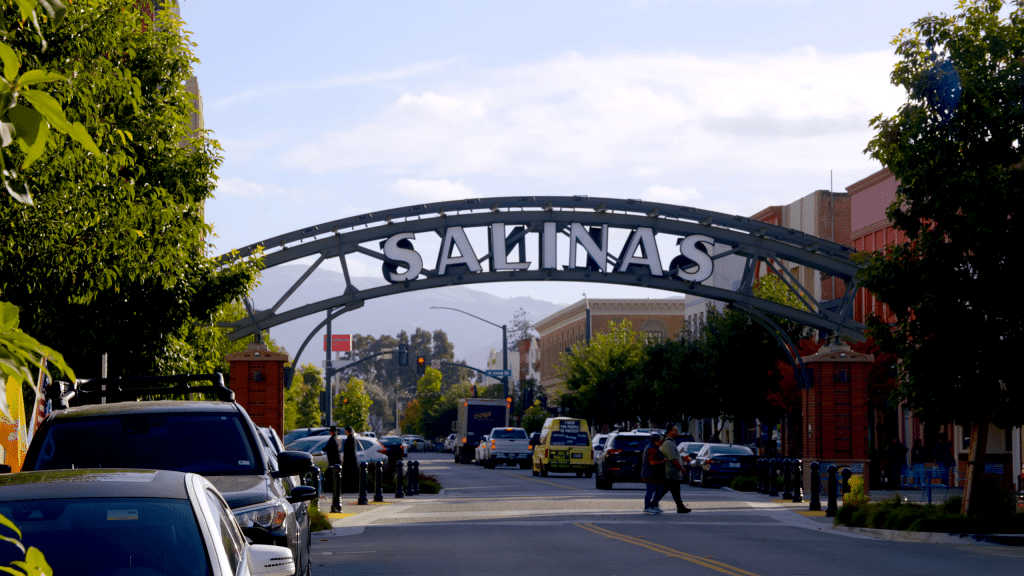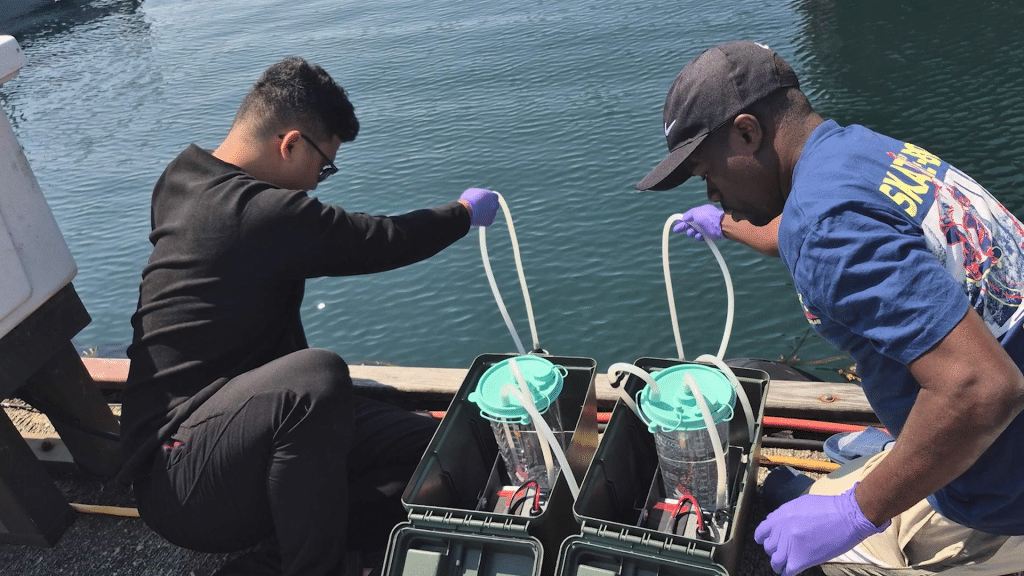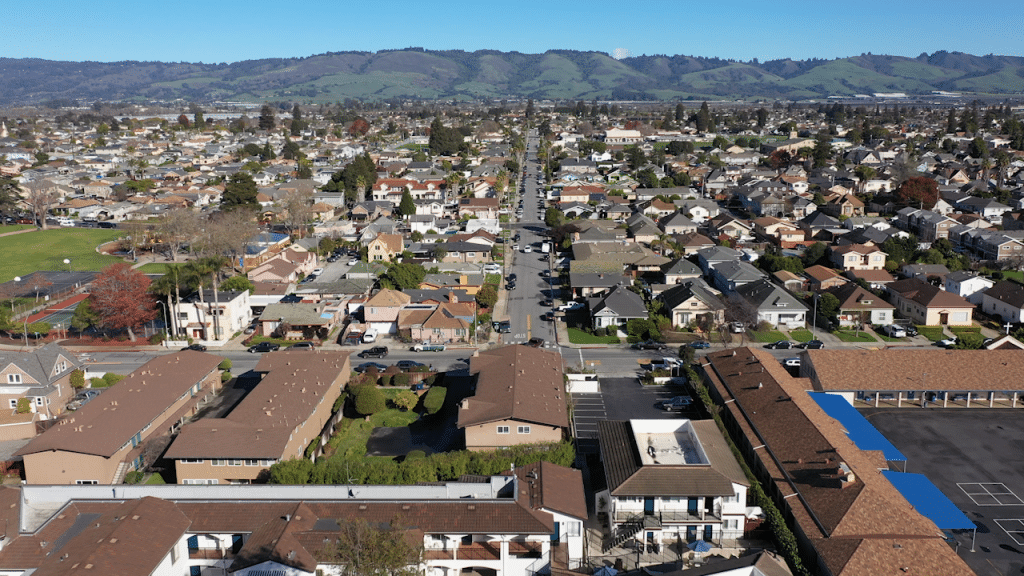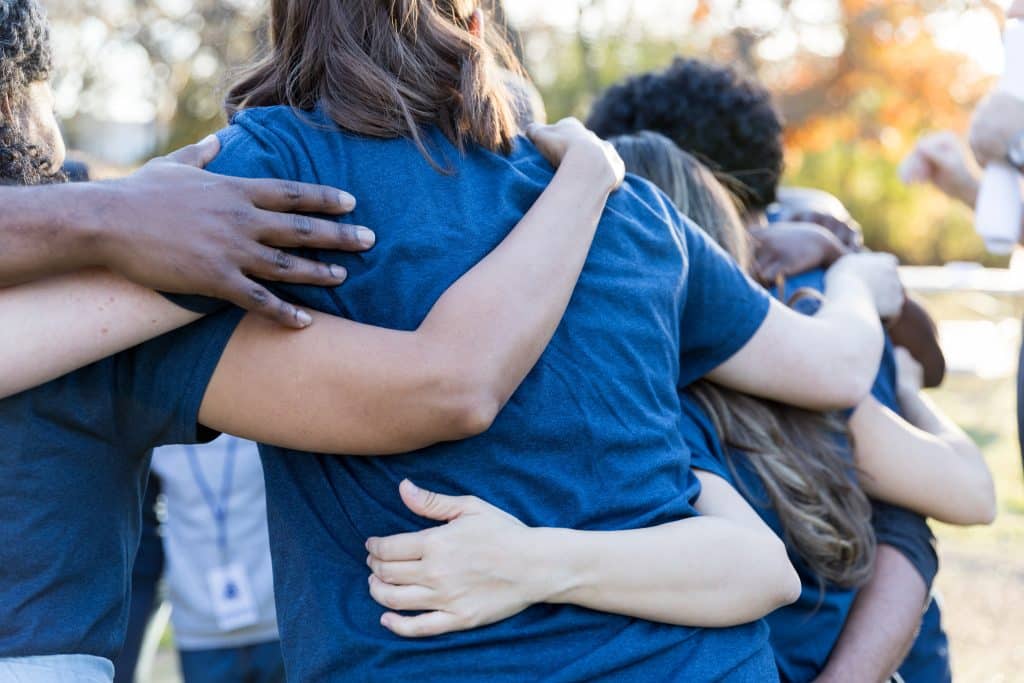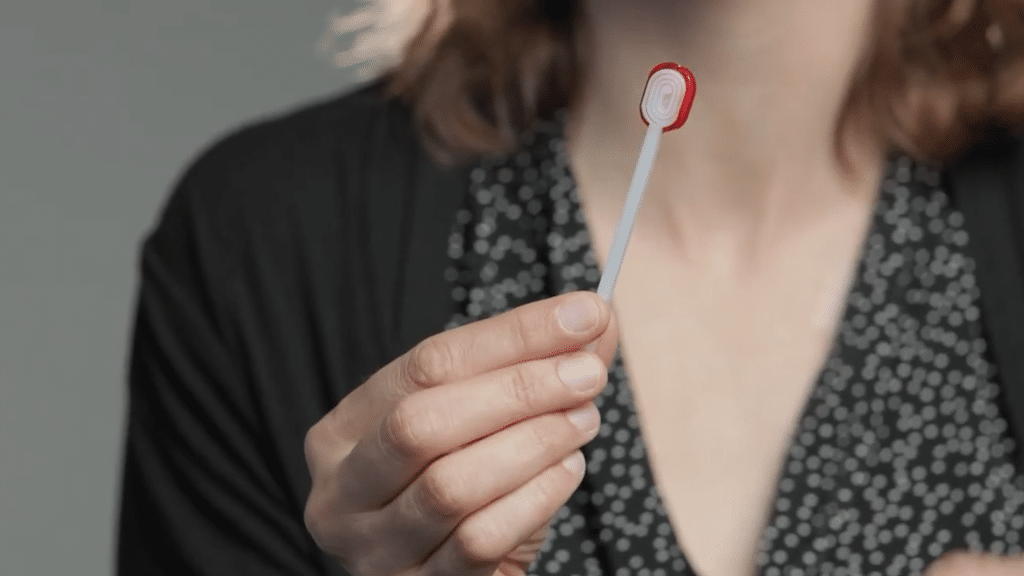It’s clearly a great site for a new park.
From above, Salinas, California is a compact ring of tightly packed urban buildings surrounded by a mosaic of green and tan farmland. At the center is Carr Lake Basin, 480-acres of dry lakebed. Privately owned, this land has been largely undeveloped with only a few storage facilities and sites of cultivated farmland. It has long been inaccessible to the residents of Salinas.
For many years, community members have advocated for Carr Lake Basin to be transformed into green space where they could enjoy nature, exercise, and bring their families.
More than a decade ago, the team at Big Sur Land Trust, an organization that works to conserve land and improve access to the outdoors, realized that while they had conserved an array of beautiful and important landscapes in the region, many people in Monterey County still had little or no access to parks and open space.
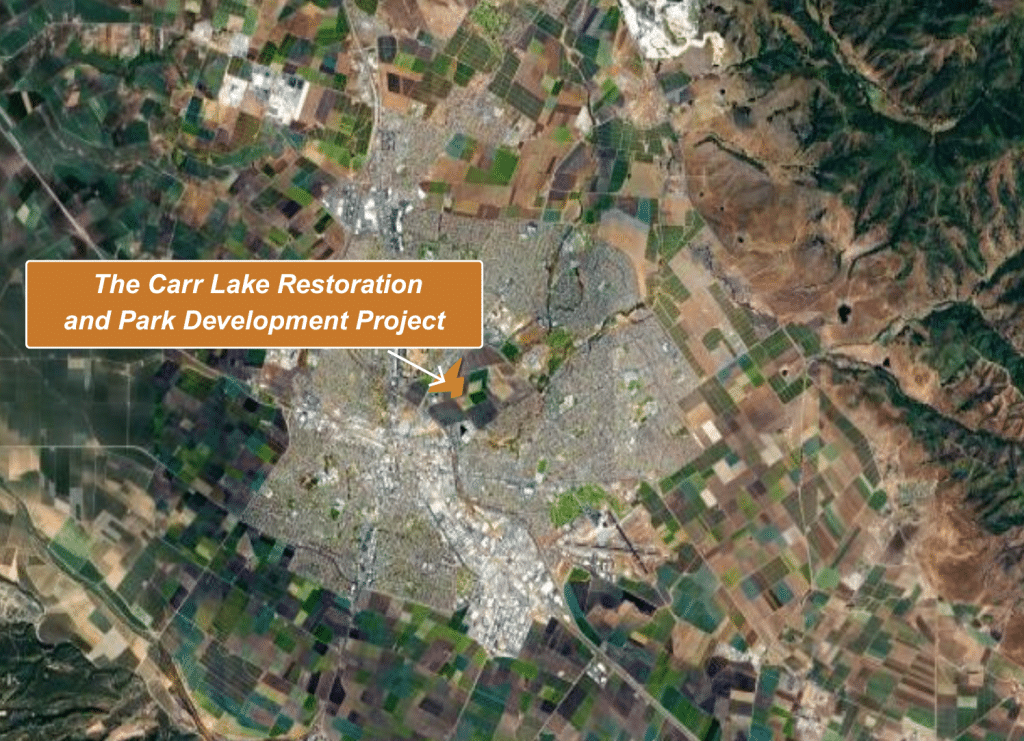
Children from the Salinas Valley frequently attended the Land Trust’s outdoor camps program, often asking why they didn’t have a place nearby where they could experience nature. So, in 2017, Big Sur Land Trust purchased 73-acres of land for sale in the Carr Lake Basin, taking the first step in making this long-held dream for a park a reality.
Now, with the first phase of construction nearly complete, the Ensen Community Park will open to the public this summer.
The neighborhood park is situated on six acres of the land and features a playground, picnic tables, a dog park, a skate spot, trails, and sports courts.
“It was great news for me to know that a park of this magnitude was going to be built here in Salinas, something that would benefit our entire community and surrounding areas,” said Joseline Islas Castro, a community leader who participated in the park development process.
Resident Leadership
Though Salinas is the most populous city in Monterey County, California, and is home to many farmworkers who support their families by working the land, it has very few open green spaces and parks, especially in East Salinas, where many families with low incomes live.
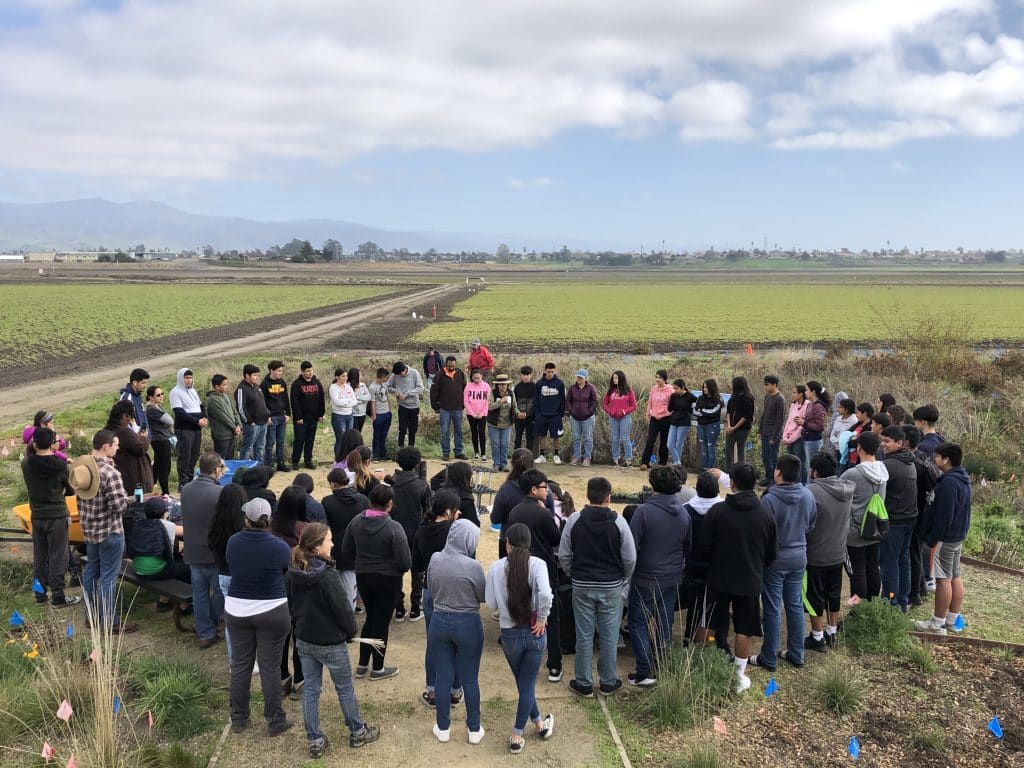
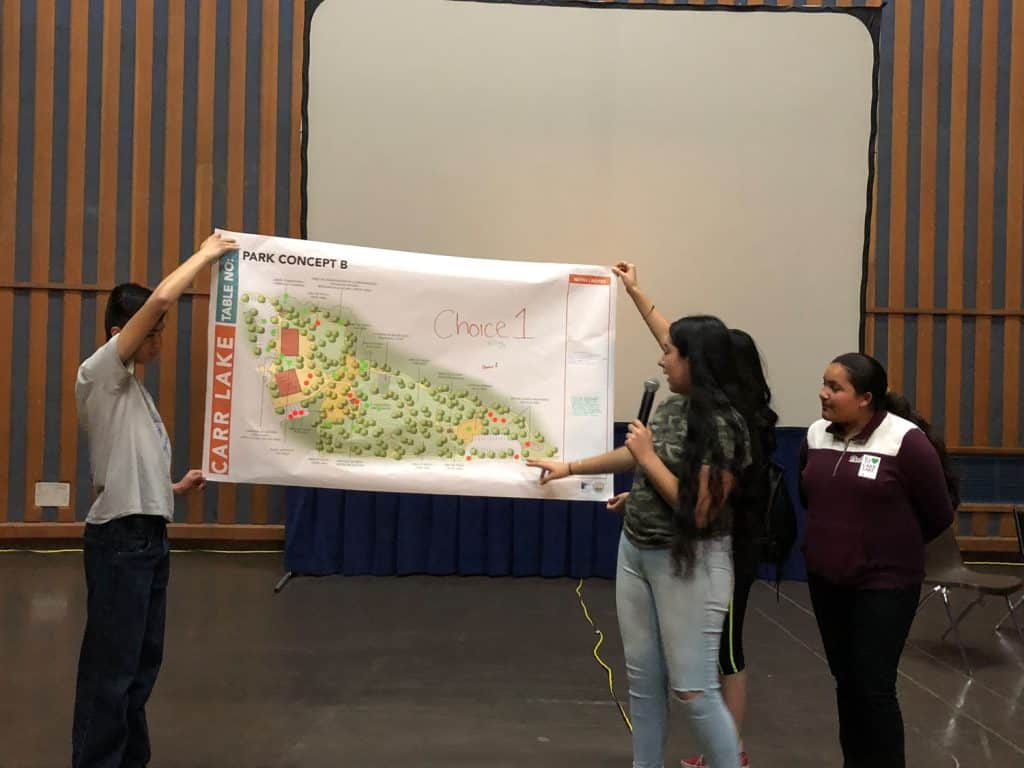
For the Big Sur Land Trust, it was critical that the project be developed from the start by the people who would ultimately use the space so that it would best meet their needs.
Working alongside local leaders and organizations—including Building Healthy Communities, CHISPA, the Monterey County Department of Public Health, and the Habitat Stewardship Project—the Land Trust helped design an inclusive process that engaged over 6,000 residents. Big Sur Land Trust partnered with the Center for Community Advocacy (CCA), an organization based in Salinas, to inform and involve local families, farmworkers, business owners, and young people in shaping the project. Thirteen Salinas-based organizations, the City of Salinas, and the Monterey County Health Department contributed to the design and development of the park.
Joseline Islas Castro was one of the residents who attended community meetings hosted by CCA to help make decisions about the park.
“People of different ages were involved. People asked for a place to rest. Many asked for grilling stations to have a place to make carne asada and walking trails. The young people wanted a skate park.”
Joseline Islas Castro, Salinas community leader and long-term resident
Salinas residents contributed to every aspect of the design and promotion of the park, giving input on everything from restrooms and parking to the native plants and trees, with the vision of what best suited the heart and soul of Salinas.
“This project is going to be transformative for the city but has also been transformative for Big Sur Land Trust in learning how to work shoulder to shoulder with the community in realizing a long-held multi-generational dream for Salinas residents,” said Jeannette Tuitele-Lewis, President and CEO of Big Sur Land Trust.
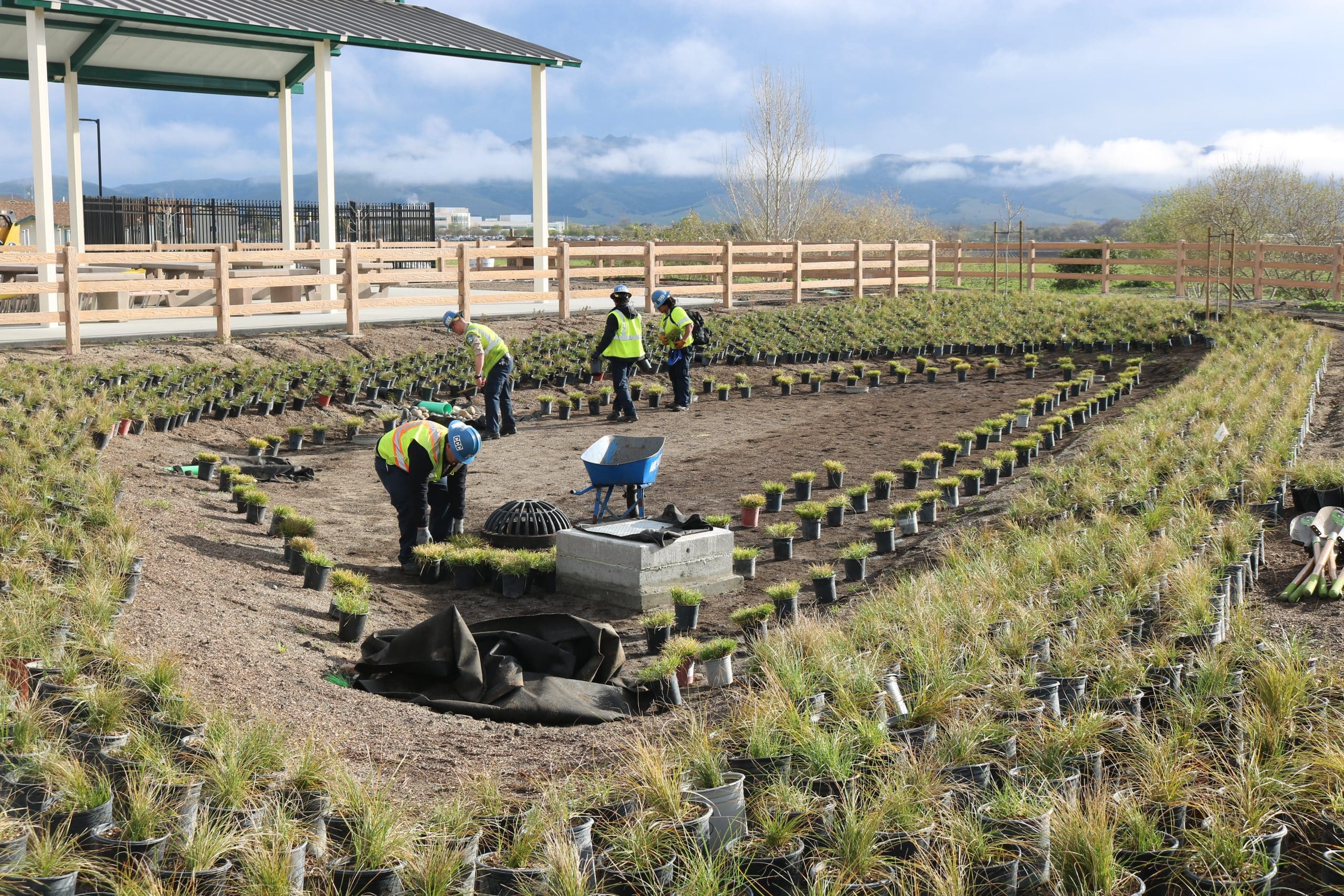
Access to Nature
Once the park opens, it will serve nearly 7,000 households and it will offer opportunities for walking, exercise, and other wellness activities, benefiting physical and mental health for visitors.
“I think it’s going to bring a lot of joy,” said Joel Hernandez Laguna, Center for Community Advocacy Executive Director and community engagement leader for the Ensen Community Park Project. “I think it’s going to really change the dynamic of the neighborhood. People are going to be traveling from outside the city just to come see this place.”
Hernandez’s daughter has already tested out the new playground… and approved the “big slide.”
"I think that's the reason why we decided to take this journey — to make sure that people know that this is our park."
Joel Hernandez Laguna, Center for Community Advocacy Executive Director
The Carr Lake Project was supported by funding from individuals, organizations, foundations, and the city of Salinas. In addition to its ongoing support to Big Sur Land Trust since 1978, the Packard Foundation has provided $2.25 million in grants for the Ensen Community Park and Carr Lake Project and has recently provided a mission investment of $2 million for the next phase of restoration.
The restoration phase of the project focuses on the remaining 67 acres of open space and will restore creek, wetland, and wildlife habitat. Residents will be able to access this land through trails that run throughout the space, expected to be completed by spring 2026. Restoring the seasonal wetlands and native vegetation in the Carr Lake Basin will reduce greenhouse gas emissions through carbon sequestration, improve air quality and water quality, and help the area better absorb flooding. This open space will also serve as an outdoor classroom where teachers can bring students to learn about the local environment, plants, and ecosystems.
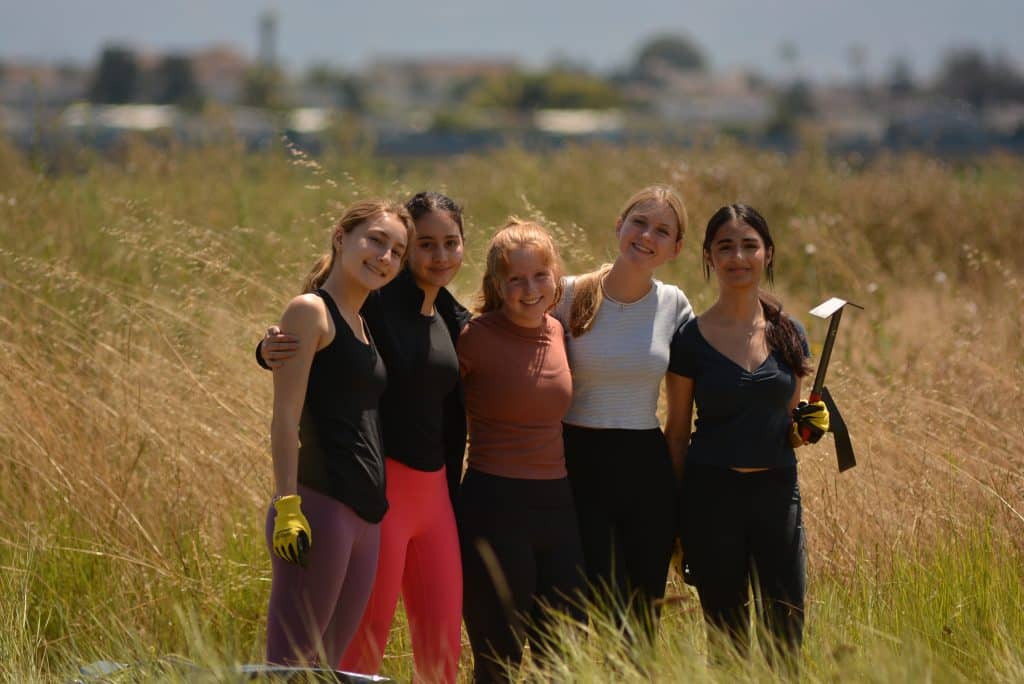
The Packard Foundation supports partners addressing many of the complex and connected issues that matter to families in California. In Salinas, the Foundation has supported youth programs, expansion of the César Chávez Library, building basketball courts in East Salinas, renovating the César Chávez Park, building the Salinas Regional Soccer Complex, and supporting purchase of the Sanborn Ranch House to be turned into a community center.
“Healthy land and healthy communities go hand in hand,” said Jessica Mancini, Program Officer for the Packard Foundation. “Ensen Community Park and the Carr Lake project is a great example of how restoring nature in partnership with community leadership brings so many environmental, social, and health-related benefits.”
Salinas residents waited 50 years for a park like Ensen Community Park, then engaged in its design and development for the past decade, but now that the park is set to open this summer, they are looking toward the future – and celebrating what it will mean for their community for generations to come.
“I want to go there and sit on a bench and watch all the families happy and enjoying the park, making carnitas, taking walks, or simply watching the children play,” said Islas Castro. “All of the families have access to a place where we can relax, to be in touch with nature, and forget for a moment everything that we are currently facing. If you want to spend time with friends and family, there will be enough room for everyone.”
